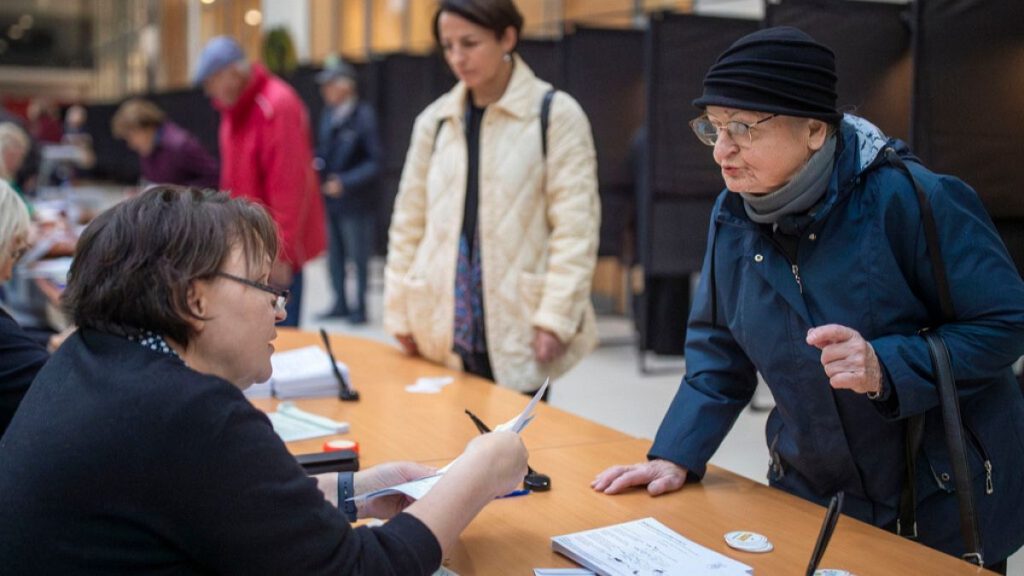Lithuania’s parliamentary elections have begun, with 2.4 million eligible voters selecting from 2,400 political candidates for a four-year term in the Seimas. Strict COVID-19 measures and an influx of migrants have caused dissatisfaction among voters, overshadowing the economic successes of Prime Minister Ingrida Šimonytė’s government. Despite double-digit personal income growth and low inflation rates, many voters remain discontented. Šimonytė has been criticized for her handling of the pandemic and migrant arrivals from Belarus, leading to potential shifts in government leadership.
The Social Democratic Party, led by Vilija Blinkevičiūtė, is expected to lead in the election, followed by Šimonytė’s Homeland Union. Remigijus Žemaitaitis’s newly registered Nemuno Aušra party, known for making anti-Semitic statements, is also expected to gain support. If no party receives more than 20% of the vote, governing alliances will need to be formed. Despite potential changes in leadership, analysts do not foresee significant shifts in Lithuania’s foreign policy, especially concerning its relations with Russia and the ongoing conflict in Ukraine.
Although Lithuania has experienced economic growth under Šimonytė’s government, voters are still dissatisfied with various crises and shocks that have impacted the country. Discontent among voters cannot be alleviated solely by positive economic factors such as increased purchasing power. The election results will determine whether the opposition Social Democrats and smaller centre-left parties will replace the current centre-right governing coalition. The runoff vote, scheduled for 27 October, will decide the majority of single-member constituencies.
The election takes place at a time when Russia’s actions in Ukraine have raised concerns about Moscow’s intentions, particularly in the strategically important Baltic region. Lithuania, which borders Russia’s Kaliningrad exclave to the west, faces potential challenges related to Russian aggression. The political landscape in Lithuania is influenced by migration challenges and economic gains, which shape voters’ concerns and preferences. The outcome of the election will determine the direction of the country’s policies, especially in relation to key issues such as COVID-19 management and migration policies.
Prime Minister Šimonytė has been criticized for her government’s response to the COVID-19 pandemic, with concerns raised about the lack of support for businesses during lockdowns and limited access to healthcare services for some citizens. The influx of migrants arriving via Belarus has also been a contentious issue, further exacerbating dissatisfaction with the government. The potential shift in leadership following the elections could lead to changes in approach towards these issues and other key policy areas. Voters will have the opportunity to voice their concerns and preferences through their ballots, shaping the future direction of Lithuania’s government and policies.
Overall, the Lithuanian parliamentary elections have significant implications for the country’s political landscape and policy direction. The outcome of the election will determine the makeup of the Seimas and potentially lead to changes in government leadership. The discontent among voters, fueled by various crises and challenges, shapes the election dynamics and highlights key issues such as COVID-19 management and migration policies. Amidst concerns about Russian aggression in the region, the election results will be crucial in determining Lithuania’s future trajectory and approach towards key domestic and international challenges.













